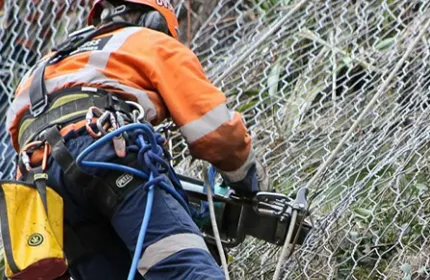-
 Phone:
Phone: -
 Email:
Email:

Durable Stainless Steel Tie Wire for Versatile Applications and Strong Connections
The Versatility and Importance of Stainless Steel Tie Wire
In the realm of construction, manufacturing, and a myriad of other industries, stainless steel tie wire stands out as an indispensable material. Known for its strength and corrosion resistance, this wire is often used in a variety of applications ranging from construction structures to crafting intricate designs. In this article, we delve into the characteristics, applications, and advantages of stainless steel tie wire, highlighting its critical role in modern industry.
Characteristics of Stainless Steel Tie Wire
Stainless steel tie wire is composed primarily of iron, chromium, and nickel, which are combined to create a wire that boasts remarkable properties. The addition of chromium—typically in amounts of at least 10.5%—gives the wire its corrosion-resistant characteristics. This feature is particularly important in environments where moisture and other corrosive substances are prevalent. Additionally, the wire often has excellent tensile strength, making it capable of holding substantial loads while maintaining structural integrity.
Moreover, stainless steel tie wire is highly malleable and can be easily bent or twisted without breaking. This flexibility allows users to manipulate the wire for various applications while ensuring that it can create secure connections. Its smooth finish also enhances its aesthetic appeal, making it suitable for decorative purposes as well.
Applications of Stainless Steel Tie Wire
One of the primary applications of stainless steel tie wire is in the construction industry. It is widely used for tying rebar in concrete structures, where its corrosion resistance plays a critical role in extending the lifespan of the concrete. By securing the rebar in place, stainless steel tie wire ensures that the concrete can withstand significant loads and maintains its structural integrity over time.
In addition to construction, stainless steel tie wire serves various purposes in agriculture. Farmers and horticulturists utilize it for tying plants, supporting trellises, and securing other materials. Its resilience to environmental factors such as rain and sunlight makes it ideal for outdoor applications. In gardening, for example, it is often used to teach young plants how to grow upwards, providing the necessary support for them to develop effectively.
stainless tie wire

Another prevalent use of stainless steel tie wire is in the manufacturing of wire products. Due to its durability and ease of use, it is frequently used in creating wire mesh, cages, and fencing. These products benefit from the wire's robust qualities, ensuring that they withstand wear and tear over time. Furthermore, the food industry values stainless steel tie wire for its hygienic properties, making it suitable for applications where cleanliness and safety are paramount.
Advantages of Stainless Steel Tie Wire
The advantages of stainless steel tie wire are numerous. Firstly, its resistance to rust and corrosion means that it requires minimal maintenance, which is a significant benefit for businesses operating in challenging environments. This quality also translates into lower replacement costs and longer service life, providing a better return on investment.
Another advantage is its versatility. Stainless steel tie wire can be used in a wide range of applications across various industries. From construction to agriculture and manufacturing, its adaptability makes it a preferred choice for professionals seeking reliable materials.
Additionally, the aesthetic qualities of stainless steel tie wire are noteworthy. Unlike other materials that may corrode or degrade over time, stainless steel maintains its appearance, contributing to a polished final product. This quality is particularly important in design-oriented fields where appearance is crucial.
Conclusion
In conclusion, stainless steel tie wire is a crucial material that epitomizes strength, durability, and versatility. Its unique properties make it an essential component in construction, agriculture, and manufacturing, ensuring that structures and products can withstand the test of time. As industries continue to evolve, the demand for high-quality materials like stainless steel tie wire will undoubtedly persist, further cementing its place as a key player in various sectors. Whether it’s supporting a concrete structure or providing stability for growing plants, stainless steel tie wire exemplifies the blend of functionality and reliability necessary in today’s demanding environments.
-
Wire Mesh for Every Need: A Practical SolutionNewsJul.25,2025
-
Steel Fences: Durable, Secure, and Stylish OptionsNewsJul.25,2025
-
Roll Top Fencing: A Smart Solution for Safety and SecurityNewsJul.25,2025
-
Cattle Farm Fencing Solutions for Maximum SecurityNewsJul.25,2025
-
Affordable Iron Binding Wire SolutionsNewsJul.25,2025
-
Affordable Galvanized Wire SolutionsNewsJul.25,2025
-
Wire Hanger Recycling IdeasNewsJul.25,2025








